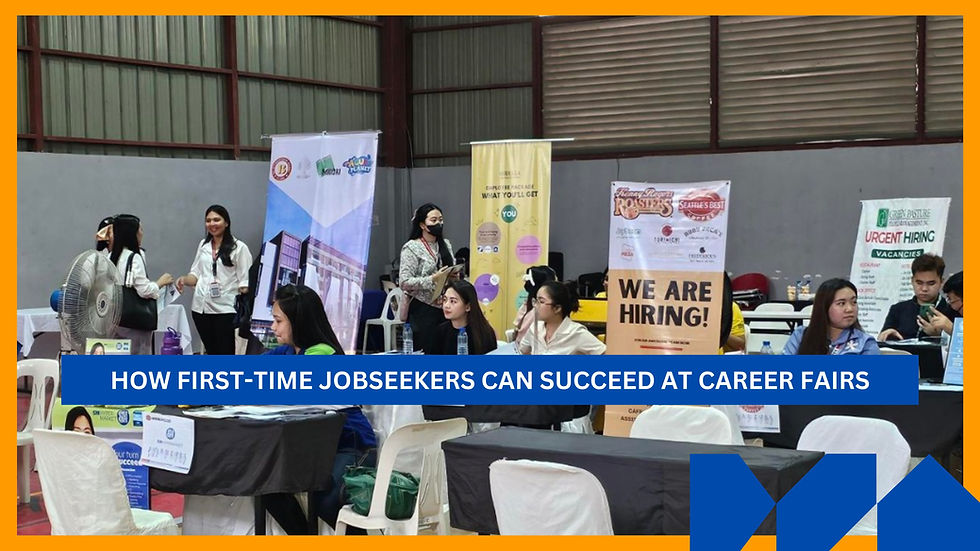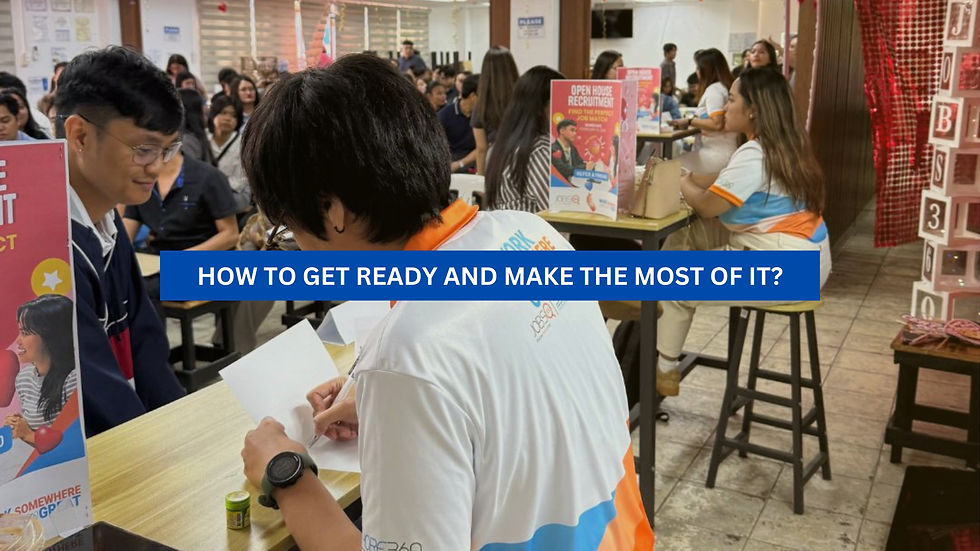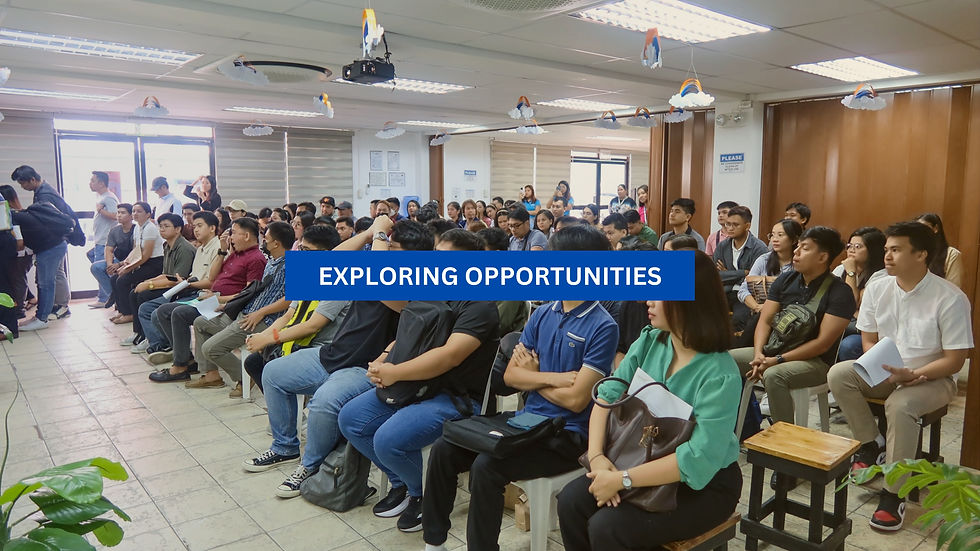How First-Time Jobseekers Can Succeed at Career Fairs
- Christian Laquindanum
- Aug 6
- 4 min read

If you've never attended one before, you might be wondering how to join job fair events, especially if you're fresh out of school, looking for better opportunities, or simply testing the waters of a new career path. Whether it's your first time or you're coming back after a long job hunt break, job fairs can be both exciting and overwhelming.
The good news is, with the right mindset and preparation, they can actually be one of the most practical ways to get hired, or at least get your foot in the door.
What Really Happens in a Job Fair?
Think of a job fair as a speed-dating event for careers. Dozens of companies gather in one venue, usually a convention center or hotel ballroom (sometimes virtually too), to meet potential employees. You’ll find booths lined up, each with company representatives ready to accept resumes, answer questions, or even do quick interviews on the spot.
You’re not guaranteed to walk away with a job offer, but the opportunity to meet multiple employers in one place is a massive time-saver. It’s also a great way to practice speaking to recruiters, getting comfortable with your elevator pitch, and learning about industries or roles you might not have considered before.
If you’re unsure what to do in job fair settings, the most important thing is to show up prepared and proactive. Standing quietly in a corner or just collecting brochures won’t help much—engaging with recruiters will.
How to Get Ready and Make the Most of It

Preparation is what separates the overwhelmed from the confident. If you want to leave a good impression, here are the basics you should never skip:
1. Research Ahead of Time Find out which companies are joining. Most job fair organizers release a list of participants ahead of time. Check their websites, current job openings, and if any positions fit your skills or interests. That way, you’ll have a plan instead of wandering from booth to booth.
2. Bring Updated Resumes Tailor your resume to the types of roles you're applying for. Print at least 10–15 copies. Include a professional-looking email address and your most updated contact details.
3. Practice Your Elevator Pitch This is a 30-second self-introduction that summarizes who you are, what you’re good at, and what kind of role you’re looking for. Practice it so you don’t freeze when someone asks, “Tell me about yourself.”
4. Dress Professionally Even if it’s not a formal interview, first impressions count. Wear business casual clothes at the very least—clean, neat, and presentable. For some job fairs in Metro Manila or larger cities, business attire is ideal.
5. Pack the Essentials Aside from your resume, bring a folder, a pen, a small notebook, and a bottle of water. If the fair is virtual, test your internet connection, camera, and mic ahead of time.
What to Do During the Event

So you're finally there—now what?
Prioritize Key Companies.
Go straight to the booths of the employers you’ve researched first. Ask thoughtful questions. Instead of just “Are you hiring?”, ask things like “What qualities do you look for in candidates for [specific role]?” or “What’s your recruitment timeline?”
Network Even If You’re Not Job-Ready Yet. Even if you’re not actively looking, you can still gather information, practice talking to recruiters, and keep connections for future opportunities. Don’t underestimate the power of a casual conversation—it could lead to something later on.
Collect Materials and Contact Info.
Grab flyers, business cards, and jot down the names of recruiters you speak with. These details will help with your follow-ups.
Take Breaks if Needed.
Job fairs can be draining. Don’t push yourself too hard. A short break to regroup and review your notes can help you refocus for the next interaction.
What to Do After the Job Fair
This is a step that many skip—but it makes a difference.
Send Thank-You Notes or Messages.
If you collected email addresses or connected on LinkedIn, send a short message thanking them for their time. Reiterate your interest and mention something specific from your conversation.
Apply Through Official Channels.
Some companies still require you to apply through their official portals. Do this promptly, ideally within 1–2 days.
Reflect on the Experience.
Think about what went well and what didn’t. Were there questions you struggled with? Were there companies you wish you’d approached differently? Use this as preparation for a career fair near you.
Exploring Opportunities Beyond Metro Manila

Job fairs aren’t limited to big cities. While Metro Manila often hosts the largest events, provinces are also seeing a surge in career opportunities. Regional hubs like Central Luzon continue to attract attention from employers, especially in industries such as tech, BPO, hospitality, and logistics.
Attending a job fair in Pampanga, for instance, can offer just as many valuable leads as the more crowded fairs in the capital. What’s more, smaller-scale events often allow more meaningful conversations with recruiters and company reps, something that’s not always possible in large venues.
If you're based outside the metro, local job fairs can be a practical and strategic move for exploring job openings without having to travel far.
Don’t Wait for the “Perfect” Time
There’s no such thing as being 100% ready. You’ll always find something to improve or prepare. But the experience of showing up, engaging, and learning from each fair makes the next one easier, and brings you one step closer to landing the job you want.
Whether you’re actively hunting or simply exploring, job fairs are one of the few spaces where employers come looking for you. So grab that opportunity, bring your best self forward, and trust that even if you don’t land a job immediately, you’re gaining something valuable: confidence, clarity, and connections.
_edited.jpg)



Comments